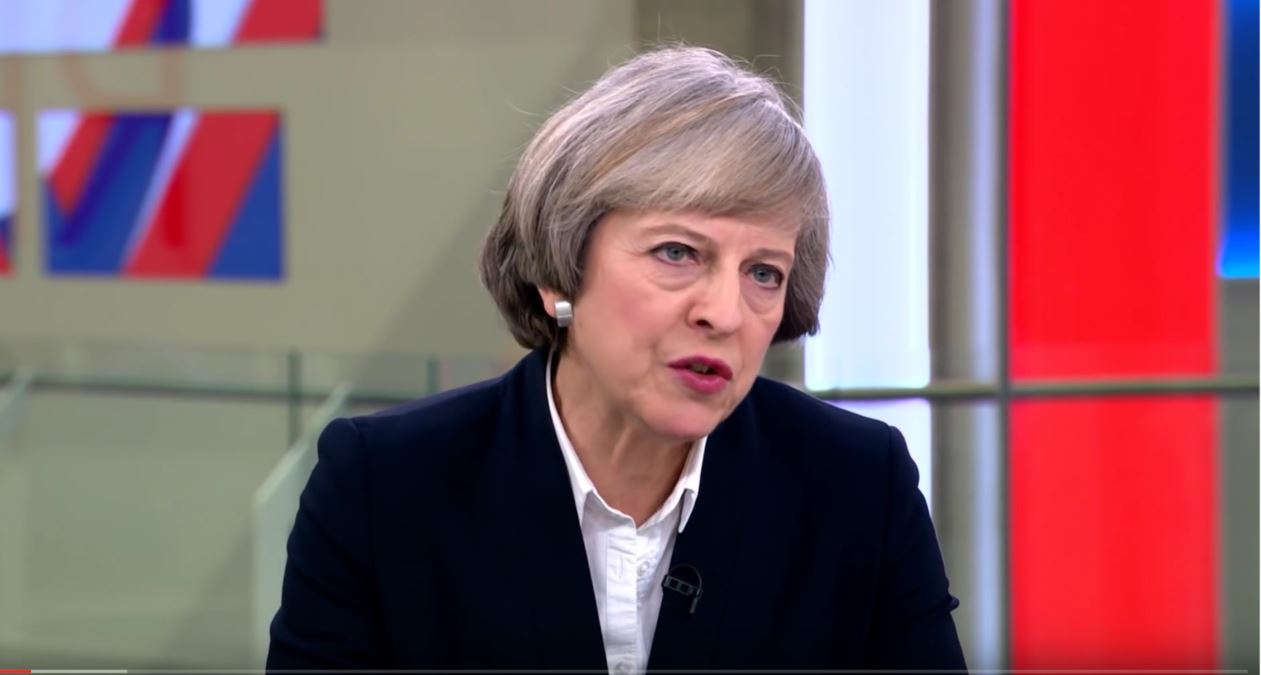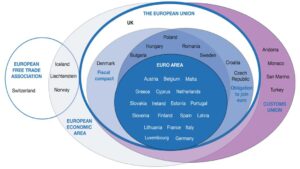
On Sunday, the PM gave a fairly comprehensive interview with Sophy Ridge on her thinking on Brexit. It’s worth watching. As Janan Ganesh of the FT suggests, we should take the PM at her word.
Here’s what she said on the Single Market and an ‘ambitious trade deal’:
“What people want is for us to focus on the right outcome for the UK. There will be a variety of ways we can get there but people who simply talk about issues around membership of the Single Market, or access to the Single Market are looking at the means.
“I’m looking at the outcomes.
“And the outcome is a really good, ambitious trade deal for the UK with the EU that enables our companies to trade in and operate in the European single Market.”
And before the cynics suggest ambitious means ambitious, it’s worth thinking about what trade deals the EU already has in place. In particular a briefing posted by former WTO advisor Peter Ungphakorn on his always useful Trade β Blog flagged a nuance on some the options open to the UK.
What caught my eye in the reproduced summary by Professor Alan Swinbank, University of Reading was the following description of the EEA(emphasis added):
“Norway, through the European Economic Area (EEA), applies EU regulatory provisions enabling it to participate in the Single Market;[1] but paradoxically it is not in the Customs Union as the EEA is built on a series of FTAs (and nor do its FTA provisions apply to agriculture). Consequently, border controls are still necessary to apply rules of origin. Turkey, despite its partial customs union with the EU, is not in the Single Market, and so border controls are needed to ascertain that traded products do fall within the remit of the customs union, and that the EU’s regulatory provisions are met.
A couple of points struck me from Professor Swinbank’s note and the PM’s comments.
First, Professor Swinbank doesn’t cover the Swiss arrangement, which is a core of about 6-7 fundamental agreements covering issues like customs and free movement of people and another 13 or so that make up the core of 20 bilaterals that determine the relationship between the EU and Switzerland.
First, the PM and Brexit Secretary David Davis MP have been trying to tell us to stop thinking in binary, black and white distinctions. They have also been telling us to stop thinking about which model we adopt (the PM’s means) but to think about the possible outcomes.
I know that the range of possible Brexit outcomes is determined by both our preferences as well as the EU-27’s. But once you start to think of the EEA as a series of trade agreements (as Professor Swinbank does) and the Swiss model as a series of bilateral arrangements, you realise that there is nothing rigid or defined about relationships in the European Union.
Remember this graphic from the pre-referendum HM Treasury report on Brexit? There is nothing black and white about what a relationship with the EU means. That’s the real takeaway of Professor’s Swinbank’s note.

So next time when EU leaders say the only option is hard Brexit or status quo, remember, they are just negotiating through the press. There’s nothing binary about a a trading relationship with the European Union.





